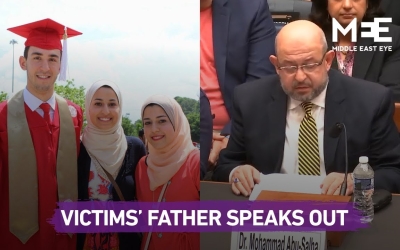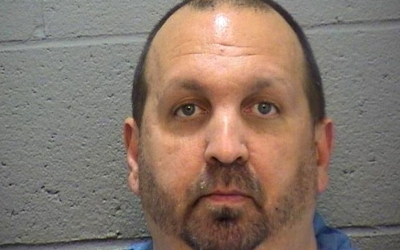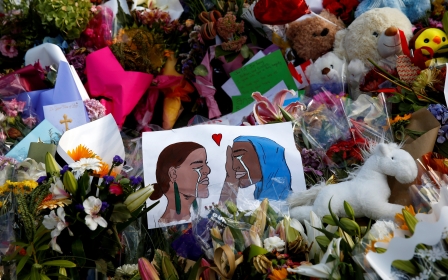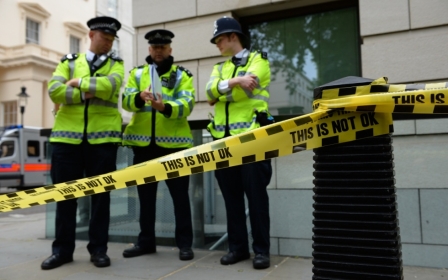US: Chapel Hill shooter gets life in prison for murder of Muslim-American students
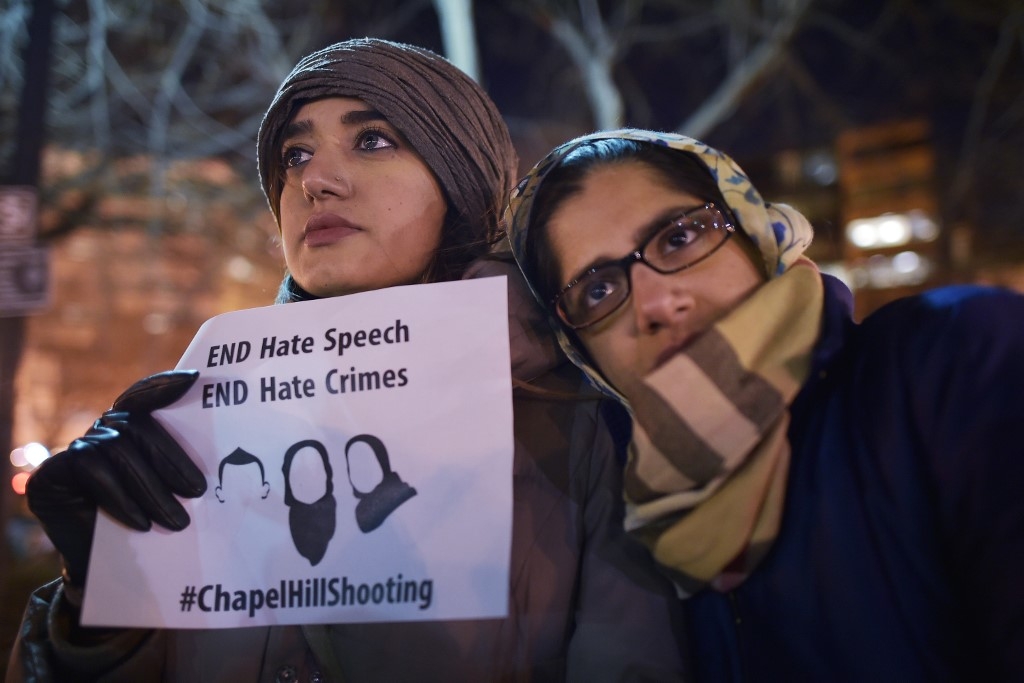
The man who shot and killed three Muslim-American college students at their apartment in North Carolina has been sentenced to life in prison, years after the murders first drew headlines amid a spike in Islamophobia in the United States.
Craig Hicks pleaded guilty to three counts of first-degree murder on Wednesday, US media outlets widely reported.
Hicks killed three of his neighbours in Chapel Hill, North Carolina, on 10 February 2015: Deah Barakat, 23, his wife Yusor Abu-Salha, 21, and Yusor's sister, Razan Abu-Salha, 19.
While local police attributed the shooting to a long-simmering parking dispute, the victims' families and their supporters said it was an anti-Muslim hate crime.
"If a Muslim man knocked on a door and executed a Christian family in their home with no provocation, that would be called terrorism," said Mohammad Abu-Salha, the sisters' father, on Wednesday after the sentence was handed down.
"But we Muslims are soft targets," he said, as reported by the New York Times.
North Carolina does not have a hate crime statute that can apply to first-degree murder, the Times reported.
But the victims' families had tried to press prosecutors to find a way to designate the murders as an act of hate.
In April, Abu-Salha spoke at a congressional hearing on hate crimes, where he told legislators that "there is no question in our minds that this tragedy was born of bigotry and hate".
'Not about parking'
On Wednesday, both the state district attorney and a behavioural psychologist echoed that, saying the murders should be classified as hate crimes.
'If a Muslim man knocked on a door and executed a Christian family in their home with no provocation, that would be called terrorism'
- Mohammad Abu-Salha, victims' father
During the court hearing, the prosecutor played for the first time a video that had been taken on one of the victims' phones right before the shooting.
"You've got three cars in the lot, and I don't have a parking spot," Hicks is heard saying seconds before he opened fire, as reported by the Times.
Still, District Attorney Satana Deberry insisted on Wednesday that the murders were over more than just a parking spot.
"It is about cold-hearted madness and murder," Deberry said, as reported by local media. "It is not about parking."
Since the murders, the families of the victims had reached out to the US government in an attempt to use federal law to recognise the murders as being motivated by hate.
They met twice with Vanita Gupta, then the assistant attorney general in charge of the US Justice Department's Civil Rights Division, the New York Times reported.
Gupta declined to discuss the case in detail, but told the newspaper that "the proof must be very clear that the only motivation for the crime is hate".
According to an FBI report released in November, hate crimes were up by 17 percent in the US in 2017, compared with the previous year.
Of the 1,749 victims of anti-religious hate crimes that year, 18.6 percent of the victims were Muslim, the FBI report also stated.
Georgia, South Carolina, Arkansas and Wyoming are the only states in the US that have not yet enacted hate crime laws, according to data from the US Department of Justice.
Middle East Eye propose une couverture et une analyse indépendantes et incomparables du Moyen-Orient, de l’Afrique du Nord et d’autres régions du monde. Pour en savoir plus sur la reprise de ce contenu et les frais qui s’appliquent, veuillez remplir ce formulaire [en anglais]. Pour en savoir plus sur MEE, cliquez ici [en anglais].


